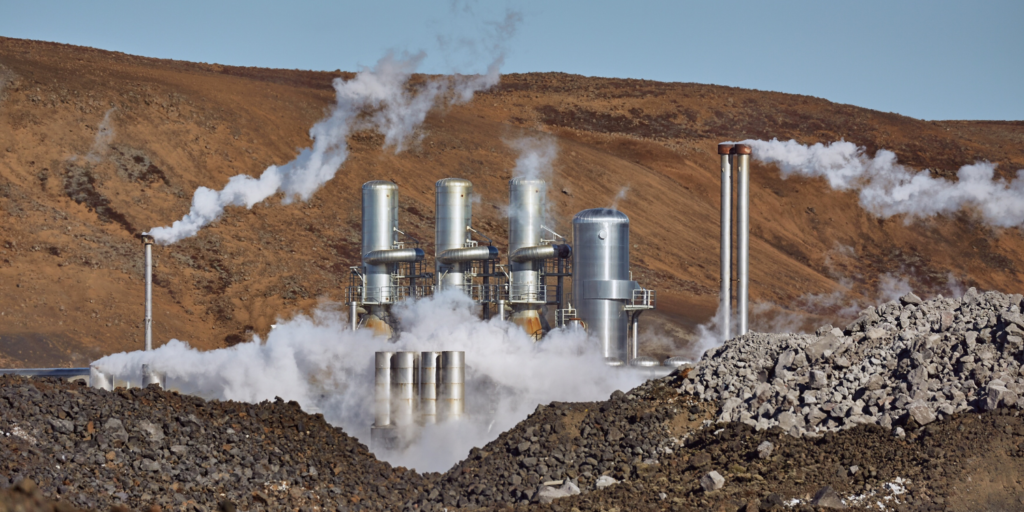Geothermal energy, which comes from the heat stored beneath the Earth’s surface, is one of the most promising renewable energy sources. As the world increasingly focuses on sustainability, regions across the globe are exploring ways to tap into geothermal resources. Georgia, known for its rich natural resources, is gradually discovering its own geothermal potential. In this article, we explore whether Georgia can harness geothermal energy and the benefits and challenges of doing so.
Geothermal Energy in Georgia: An Overview
Geological Background
Georgia’s geothermal potential lies primarily in its western region, where over 250 natural and artificial geothermal sources are spread across 44 fields. These geothermal resources range in temperature from 30°C to 110°C, making them ideal for a variety of applications. The presence of these geothermal fields opens up significant possibilities for energy production, heating, and even agricultural uses.
Current Utilization
At present, geothermal water is primarily used for household heating and in agriculture. Geothermal systems are particularly effective in heating homes, where hot water is pumped directly into systems that circulate throughout buildings. This provides a sustainable and cost-effective method of heating, reducing the reliance on traditional energy sources like natural gas or electricity.
Recent Developments in Geothermal Energy
Residential Applications
A major step forward for geothermal energy in Georgia has been its integration into residential communities. For example, the Town at Trilith in Fayetteville, Georgia, has taken the bold step of incorporating geothermal energy into its homes. The development relies on geothermal heat pumps to supply heating and cooling to the homes, showcasing how this renewable energy source can be effectively implemented in modern living spaces. The use of geothermal energy in residential areas not only lowers energy costs but also promotes sustainable living.
International Collaborations
In a significant move towards expanding geothermal capabilities, Georgia has signed a memorandum of understanding with Iceland, a country known for its advanced use of geothermal energy. This partnership is set to foster technological knowledge exchange and attract investment in Georgia’s geothermal projects. It highlights the state’s commitment to tapping into its geothermal resources and aligning with global efforts to shift towards more sustainable energy solutions.
Potential for Geothermal Energy in Georgia
Energy Security and Sustainability
Harnessing geothermal energy offers several benefits, particularly in terms of energy security. By tapping into local geothermal resources, Georgia can reduce its dependency on fossil fuels and imported energy. Geothermal energy, being a renewable resource, also plays a crucial role in reducing carbon emissions, contributing to the state’s sustainability goals. As energy demands continue to rise, geothermal energy can serve as a reliable and eco-friendly alternative.
Economic Implications
The development of geothermal energy has the potential to create significant economic benefits. First, it could lower energy costs for both residential and commercial consumers. Additionally, establishing geothermal plants and infrastructure would create jobs and stimulate the local economy. Over time, the expansion of geothermal energy could help Georgia become a leader in renewable energy, attracting further investments and fostering innovation in energy technology.
Challenges and Considerations
Technical and Environmental Factors
While the potential for geothermal energy in Georgia is substantial, there are challenges to overcome. One of the main hurdles is the technical aspect of drilling for geothermal resources, which can be costly and require advanced technology. The depth at which geothermal resources are found also varies, meaning that each geothermal project might come with its own unique set of challenges. Moreover, environmental considerations must be taken into account, particularly in terms of groundwater use and the management of geothermal fluids.
Policy and Regulatory Framework
The success of geothermal energy in Georgia will largely depend on the state’s policy and regulatory environment. While Georgia is taking steps toward embracing geothermal energy, further investments in infrastructure and policy support are necessary to drive the industry forward. This includes incentives for private companies to invest in geothermal projects and the development of clearer regulations regarding land use and energy production. A supportive regulatory framework will be key to overcoming the technical and financial barriers associated with geothermal energy development.
Conclusion
Geothermal energy holds immense promise for Georgia. With its rich natural geothermal resources, the state has the potential to become a leader in renewable energy. By investing in geothermal technology, Georgia could enhance its energy security, promote sustainability, and boost its economy. However, overcoming the technical and regulatory challenges will require strong government support, public-private partnerships, and continued innovation. As we move toward a greener future, Georgia’s exploration and utilization of geothermal energy could be a significant step forward for the state and the broader renewable energy movement.


